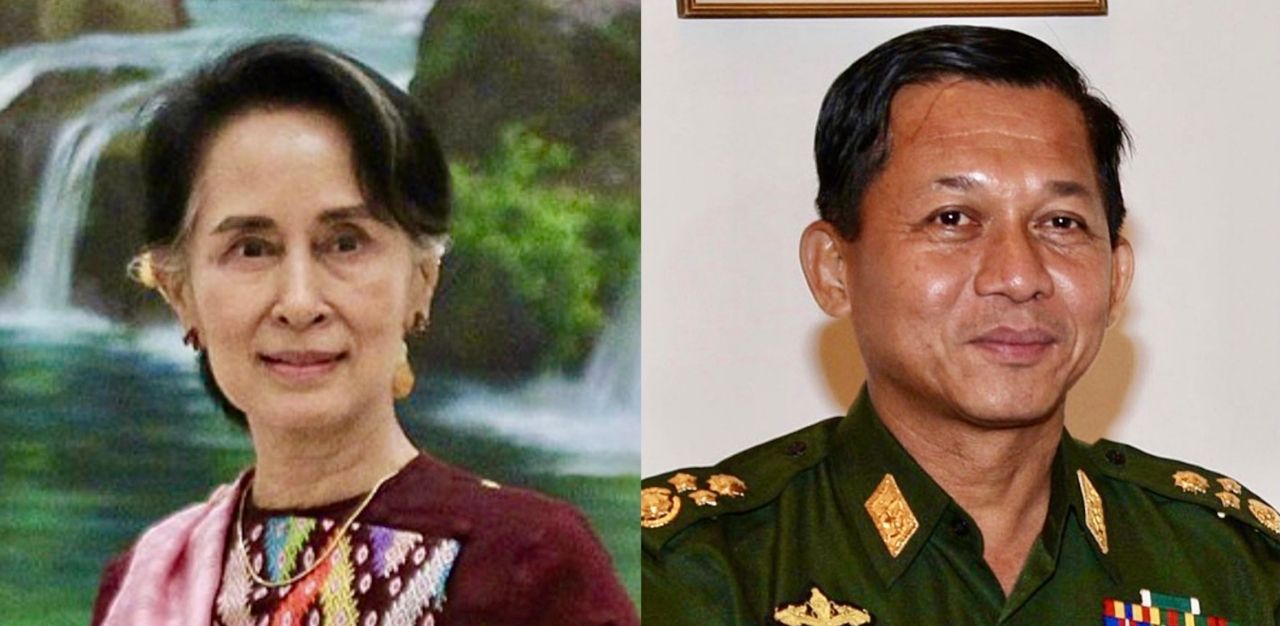Three weeks after the Myanmar military (or Tatmadaw) moved to oust a legitimately elected civilian government, neighbouring Indonesia is said to be pushing fellow Association of Southeast Asian Nations (ASEAN) members to hold the junta to their pledge to hold elections.
The Tatmadaw alleged fraud in the November 2020 elections which saw their proxy Union Solidarity and Development Party (UDSP) winning just 33 seats, compared to the 396 won by the National League for Democracy (NLD) who retained power.
The 1 February coup, on the day the new parliament was to be sworn in, saw the military wrest power, declaring their control for a year after which they will hold fresh elections. Since those events, the military, led by Commander-in-Chief Min Aung Hlaing, has reconstituted a new Union Election Commission (UEC) consisting members aligned to them.
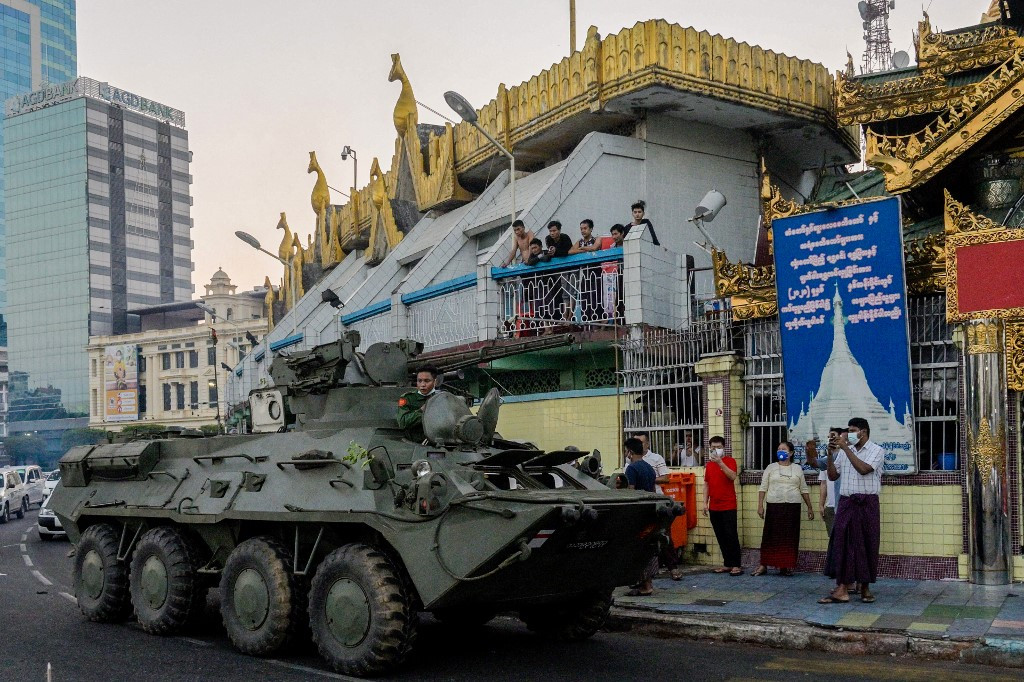
The previous civilian-led UEC had rejected the Tatmadaw’s allegations of fraud in the 2020 elections despite reported instances of intimidation, whereas the new UEC has quickly “found” incidents of fraud in certain electorates around the capital Naypyidaw.
READ: Myanmar Coup: View of the Common Folk
Unsurprising ASEAN response
Established in 1967, ASEAN has in its more than half century of existence adopted a hands-off policy with regard to conflicts in its member nations. Now boasting 10 member nations, with Timor Leste and Papua New Guinea having observer status, the bloc has steadfastly stuck to its founding principles, the main three of which are:
- Mutual respect for the independence, sovereignty, equality, territorial integrity, and national identity of all nations;
- The right of every State to lead its national existence free from external interference, subversion, or coercion; and
- Non-interference in the internal affairs of one another.
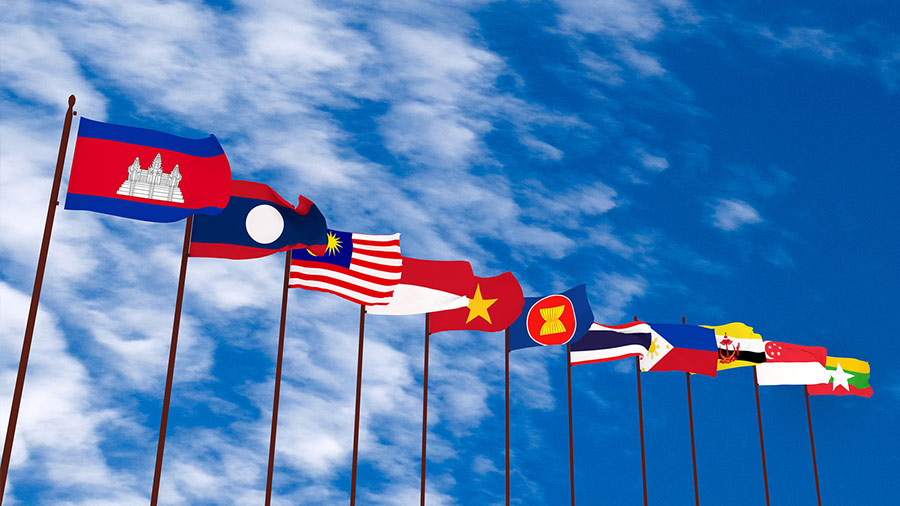
It thus came as no surprise that the current ASEAN Chair, Brunei Darussalam, issued a statement on 1 February itself following the coup reminding members of the principles of the ASEAN Charter which includes the “adherence to the principles of democracy, the rule of law and good governance, respect for and protection of human rights and fundamental freedoms.”
The statement reiterated that “political stability in ASEAN Member States is essential to achieving a peaceful, stable and prosperous ASEAN Community” and also encouraged “dialogue, reconciliation and the return to normalcy in accordance with the will and interests of the people of Myanmar.”
But it is imperative to note that ASEAN’s other guiding principles include peaceful settlement of differences or disputes as well as the renunciation of the threat or use of force. Given that as a goal, ASEAN would do well to step in to ensure the people of Myanmar are kept out of harm’s way, thus achieving the other stated goal of “effective cooperation among (member nations)”.
Indonesia’s novel approach
Indonesia’s push this past week to hold the current military junta to their pledge of holding elections is unusual, given ASEAN’s notorious reluctance to comment on member nations’ politics.
Indonesia wants ASEAN to agree on a plan that sees monitors in place to ensure fair and inclusive elections, should they be held as the Tatmadaw has promised. The junta has so far not given a timeline as to when fresh polls will take place.
Protestors in Myanmar are opposed to this proposal, as it amounts to a tacit approval of the coup, a sentiment echoed by some Western countries who contend last November’s landslide victory for Aung San Suu Kyi’s NLD already indicated the people’s choice.
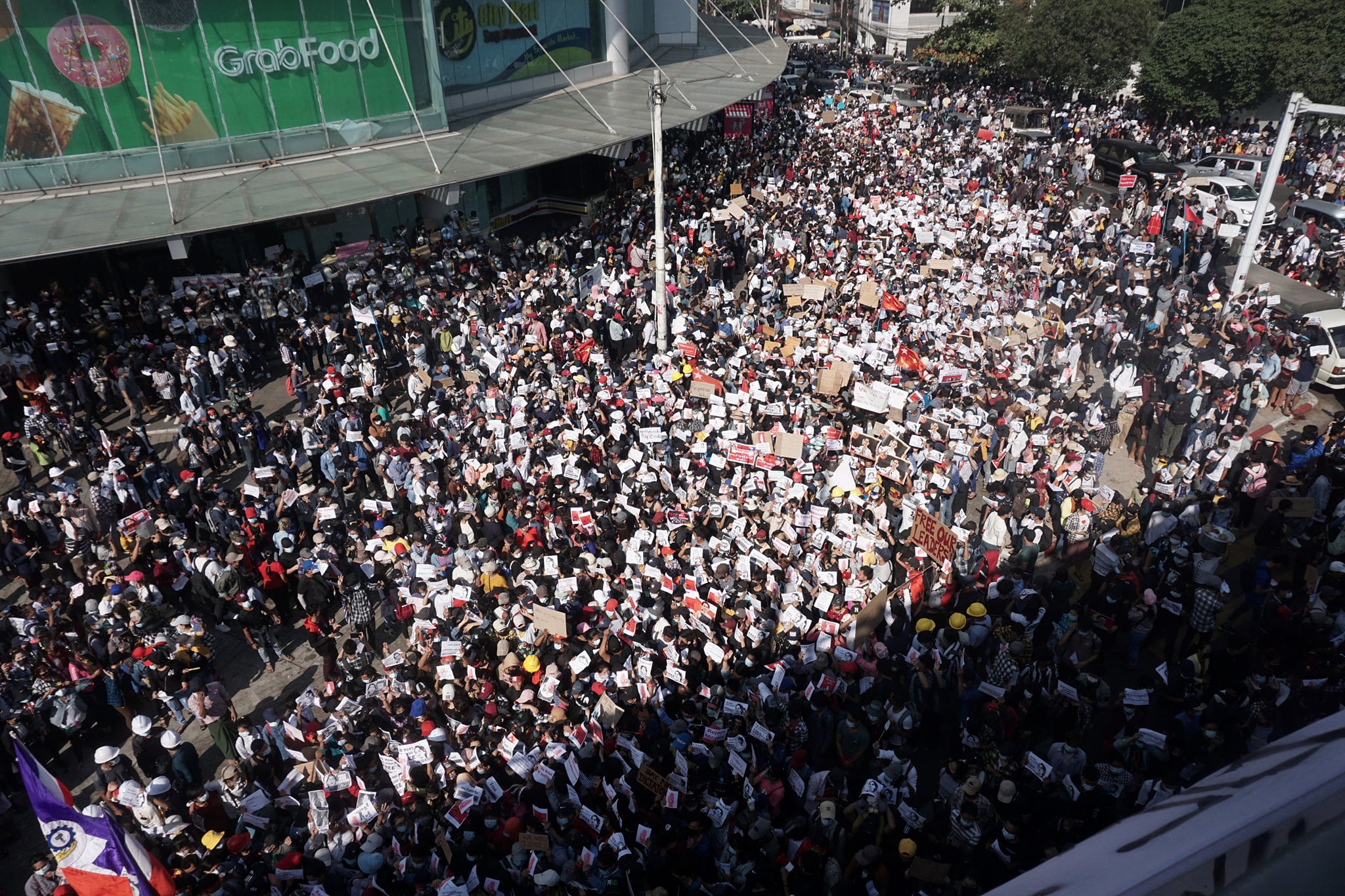
However, Jakarta’s solution must be seen as an effort to prevent inevitable bloodshed as the military loses its patience against protestors who have risen in cities across Myanmar in a spontaneous response to the call for civil disobedience.
The military’s toughening of stance in recent days has seen the unleashing of live rounds on protestors and a rise in the number of casualties at demonstrations that are occurring daily.
This proposed ASEAN-led solution also offers the military a face-saving way out of this fraught situation with some political analysts calling the coup a “grave miscalculation” given how the populace has fearlessly risen to oppose the injustice and further military rule, as well as demand their right for self-determination.
READ: The 2021 Myanmar Coup: No End in Sight as Protests Take a Violent Turn
What has Singapore said?
As one of Myanmar’s closest trading partners – the Singapore dollar being the only Asian currency accepted by money changers in Myanmar – Singapore’s response is closely watched.
Speaking in Parliament two weeks after the coup, Singapore Foreign Minister Vivian Balakrishnan warned against “widespread sanctions” on Myanmar as it would hurt the nation’s general population the most.
Dr Balakrishnan called for President Win Myint, State Counsellor Aung San Suu Kyi and other detainees to be released “so that they can engage in discussions and negotiations in good faith.”
Saying Singapore hopes for “peaceful resolution and national reconciliation” in Myanmar, he added that “stakeholders in Myanmar must find a long term, peaceful political solution, including a return to its path of democratic transition.”
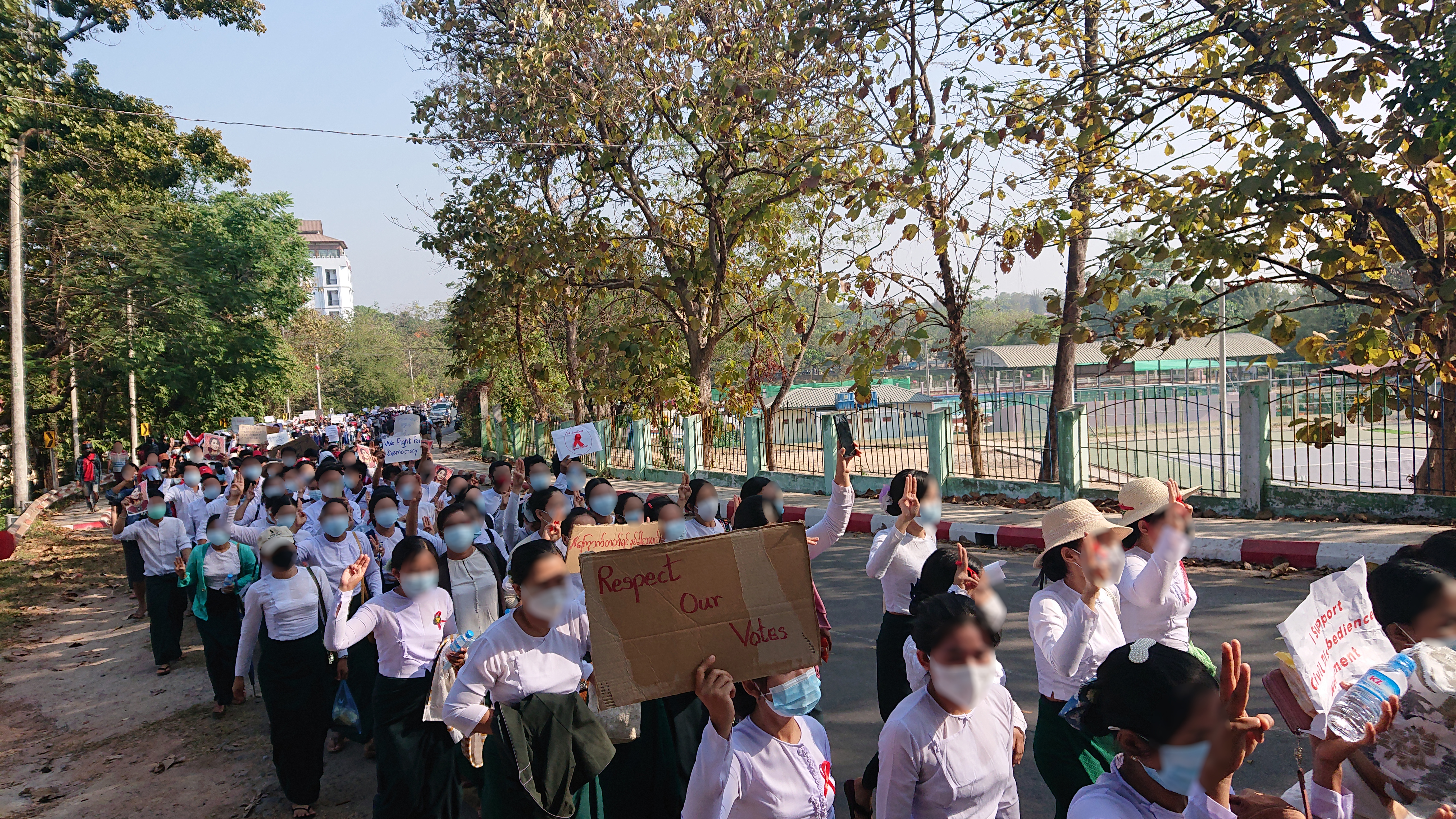
Singapore, he said, has always upheld that Myanmar’s future must be determined by its own people and warned of serious consequences “for Myanmar and indeed for our region” should the situation continue to escalate.
Commenting on ASEAN’s role, Dr Balakrishnan said ASEAN can play a discreet, constructive role in facilitating a return to normalcy and stability in Myanmar. He added that: “Engagement rather than isolation will go further in ameliorating this crisis and ASEAN will work closely with all its external partners – including the United Nations, United States, China, India, Japan and the EU – to foster an inclusive dialogue with all key stakeholders, and we encourage Myanmar to return to its path of democratic transition.”
An ASEAN solution?
Despite ASEAN’s perceived impotence, the regional grouping is still seen as the body most likely to be able to help in the crisis, as seen by calls from the United Nations Security Council, the European Union and superpowers China and the United States for ASEAN to mediate.
Reuters reported that the Indonesian plan would see ASEAN helping to facilitate dialogue between the junta and protesters, with Indonesia foreign minister Retno Marsudi rallying support for a special summit of ASEAN foreign ministers to discuss the Myanmar crisis.
Engaging with the Tatmadaw’s leadership appears to be the biggest stumbling block although reports are emerging of “back channel” approaches to the junta by some ASEAN nations to urge restraint and prevent more bloodshed, given the junta’s past history of bloody crackdowns.
It remains to be seen if the Tatmadaw could be persuaded to come to the ASEAN table, as they have reportedly rejected the request for a special summit and insisted any discussion should be done at the scheduled meeting of ASEAN foreign ministers in August.
ASEAN needs no reminding that the Tatmadaw could quite easily retreat back into its old shell, returning Myanmar to a reclusive state while forging closer partnerships with China and India, and condemning its people to isolation yet again.
Join the conversations on THG’s Facebook and Instagram, and get the latest updates via Telegram.
